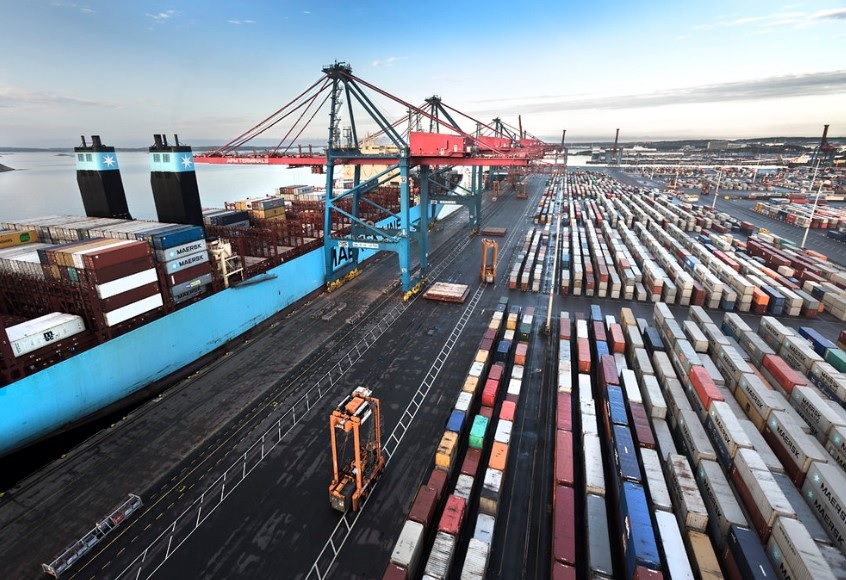Finding a cure for the pandemic will not necessarily help the container trade, according to a Danish Ship Finance (DSF) report published this month, which says overcapacity and shift in supply chains will affect the market long after the cure for the disease is found.
As a result of the pandemic global trade is suffering, what many are calling, the worst slowdown since the great depression in the 1920’s and 30’s. Part of the difficulty for the container trades is that the lines are set up to achieve growth in the business, with new mega-ships on the slipways and a collapse in demand which will not necessarily bounce back once the crisis is over.
Widespread lockdowns have disrupted trade and “inflicted costs and uncertainty on manufacturers,” said DSF.
“As a result, manufacturers are likely to re-evaluate their supply chains and the implied risk, which we believe could lead to the degree of supply chain complexity being reduced and even some reshoring of production,” said the DSF report.
If such a reconfiguring of supply chains were to take place the lines, which have ordered many post-Panamax container ships, could find that these vessels are no longer in such demand.
According to DSF, the post-Panamax fleet is set to expand by 10% and 9% this year and next year, while the medium-sized container ships are hardly being ordered at all, but it is the feeder fleet that is key, with the orderbook for feederships “front-loaded”.
“We anticipate an expansion of the feeder fleet of 7.5% in 2020, falling to 2.6% in 2021. A fairly large number of feeder vessels are older than 20 years (25% of the fleet, which could dampen the rapid fleet expansion significantly if owners take the opportunity to scrap vessels,” according to DSF.
In contrast, the post-Panamax fleet is comparatively young, with the oldest vessel just 14 years old.
Capacity management and reduced bunker costs are essentially short-term solutions. With the price of crude linked to the bunker price, any return of production will see an increase in demand for oil and will eventually push up prices again. Crude oil prices have in recent days stabilised since its highly volatile period last month.
Severe over-capacity is likely to be a more persistent problem for the lines in the coming months, prompting DSF to warn that, “If the oversupply is not addressed liner companies’ earnings will come under severe pressure, testing their financial resilience.”




